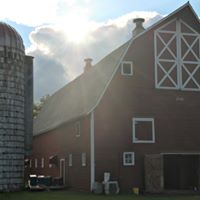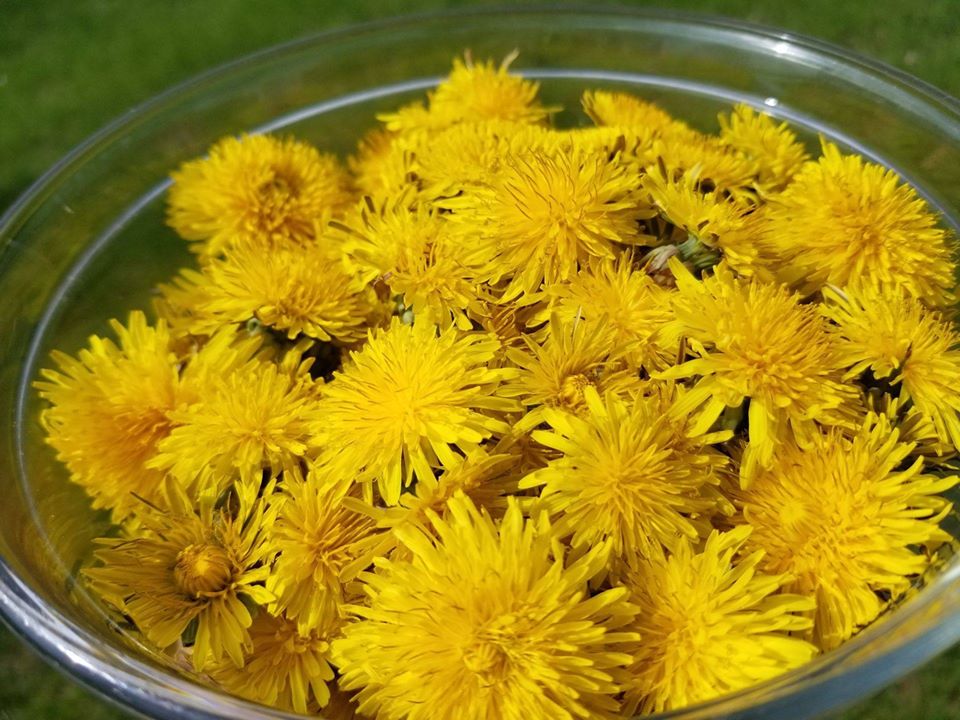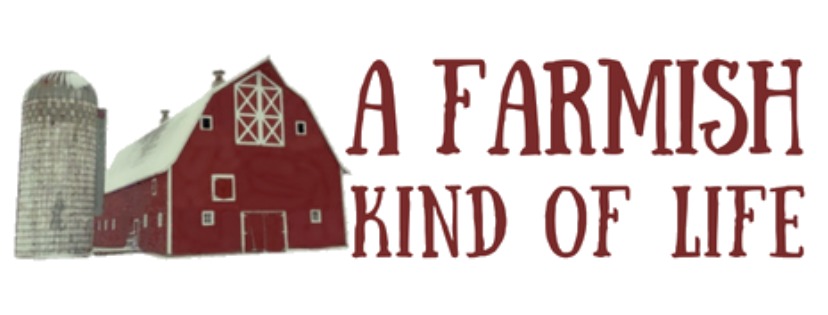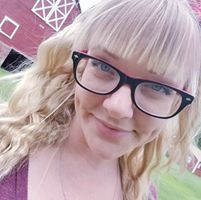I recently started following Amy Dingmann’s podcast, A Farmish Kind of Life, about life as a homesteader. Amy lives on a five acre homestead in central Minnesota with her husband, two teen boys, chickens, pigs, turkeys and ducks. They have a few gardens, a grapevine, and a raspberry patch.
Amy’s matter-of-fact manner has led me to listen to her episodes and then to reach out to her to have a conversation. I hope you’ll enjoy “listening in…”
Barbara: You moved to Clucky Dickens Farm in 2011. What type of home did you have prior to that? Was it also a farm? Is this your first time farming, or did you have other farm experience?
Amy: When my husband and I were first married, we lived right on Main Street in a small town. It was weird for me because although I didn’t grow up as a homesteader per se, I did grow up on 12 acres of woods/creek. My husband had lived in town his whole life. We knew we wanted to be in the country eventually and have a small farm. Everything we’ve learned about homesteading since our search and eventual move to the farm in 2011 has been learn-as-we-go.

Barbara: I grew up on 10 acres, and there certainly is something to be said for going out into the woods and “making your own fun,” as my Mom would say! What was important to you as you searched for your farm? Your must-haves?
Amy: When we started looking, we thought we wanted no less than 40 acres, but we had a hard time finding any big pieces of land. Then we started thinking about how much more work it would be to farm 40 acres (bigger equipment we didn’t have, more money on seed, fence). So we started looking for something smaller. We weren’t too picky other than it needed to be in a certain area because of my husband’s job. We had three houses fall through before we finally found where we ended up – it was magical. I remember driving up to it and seeing the big red barn and thinking, “wow.” And I remember standing on the ladder to go up into the hayloft and catching my hubby’s eye and I just knew it was home. There were so many things that should NOT have worked out in us buying this place (we were so jaded having already had three properties fall through before it) but everything went off without a hitch. I think we ended up where we were always supposed to be. 🙂
Barbara: What do you enjoy most about homesteading?
Amy: Our homestead is my little place of peace. It’s also a place where I feel capable, creative… and it’s a place of so much learning! There are new lessons every single day. There is a power in “self”-reliance and “self”-sufficiency, but it’s really almost like a partnership with your land, you know?
Barbara: I sure do understand that. Can you share one or two of the lessons you’ve learned from your land?
Amy: There have been a lot of lessons but I would say the one I’m being reminded of right now is something along the lines of “what you need is already around you.” I remember when we moved to the farm and at some point I realized that plantain was plantain. That thing I’d been cussing at and trying to pull out of the garden or the cracks of the sidewalk was something that could help me the next time I got stung or bit by a bug? No way!
This year I made dandelion jelly for the first time – it is divine. So I think it’s fun to take the lesson of what you need is already around you and apply it to things that are maybe outside of the ground you’re standing on. You’ve got your family. You’ve got a clear head. You’ve got ambition. You’ve got a good heart. You’ve got words. You know? We don’t need to complicate things. We have what we need if we just look.

Barbara: What is the most difficult aspect of homesteading?
Amy: It’s not so much an issue for me anymore, but I would say in the beginning a difficult aspect is learning that you’re not in control. You can’t go into homesteading in order to be in charge of the land or to control what happens. Everyone eventually learns that lesson, and it’s a much more enjoyable (and productive!) journey when you figure it out.
Barbara: If you weren’t running a homestead, what would you be doing? What other work have you done in the past? How has your past experience led to where you are today?
Amy: I grew up heavily involved in the arts (music, theater, writing). My plan was to have a career in musical theater. Now the garden is my stage and I sometimes sing to the chickens. 😉 If I wasn’t homesteading, I’d be writing. So I guess the fact I can do both right now means I’m pretty darn spoiled.
Barbara: You and me both! I find myself carrying on conversations with my plants and wild critters that I come across. I swear my plants grow faster because of our talks.
Amy: I totally agree with that!
Barbara: Can you share a favorite veggie recipe?
Amy: In Minnesota, one of the first things to pop out of the ground are radishes. I never used to like them until someone explained to me that you can slice them thin and fry them. Who knew?? So now it’s one of my favorite “first meals of the garden” for the year.
Barbara: What have you found to be your most prolific vegetable?
Amy: Tomatoes – which is great because even though I’m still learning to eat them raw, we preserve and can so many tomatoey things: pasta sauce, ketchup, chili base, salsa… This year I am going to do sun dried tomatoes as well. We also do really well with winter squash, which is awesome because I could eat squash everyday of my life and still want more.
Barbara: Any garden advice you’d like to share?
Amy: Several friends are starting gardens for the first time this year and tell me “I don’t know what I’m doing, I feel like I’m just punting.” And I think that’s okay. Sometimes I feel we can research things to death and never get started. If there is anything I’ve learned about gardening, it’s that every year is different and there is always something to learn. So, as I see it, get those seeds and plants in the ground and learn what you can this year. You will never know it all.
Barbara: And may I add to keep tabs on them as they’re sprouting and growing. So often, other life aspects start to take precedence, and then you turn around and the garden has gone haywire!
Amy: This is totally true. It feels like you wait and wait…and then boom…and then you can’t keep up!
Barbara: Homesteading seems to be a very utilitarian lifestyle. Do you feel that your every action needs to be productive?
Amy: I used to believe that everything I did on the homestead had to be productive, but I don’t anymore. Or maybe it’s that I’ve changed my definition of productive. Sitting and watching the sunrise or sunset is productive (in a rest and rejuvenation kind of way) so maybe it’s more about the intention behind what we’re doing? We need those days where we get “nothing” done, they’re just as important. They make it possible for us to really pound out the busy days.
Barbara: I think I’m just starting to realize this. Now, you’ve been doing some very contemplative writing and podcasting lately. What led to such ponderings?
Amy: 2020 has brought me to a place in my life where a lot of stuff is ending or changing and I feel very much like I did when I was nearing the end of high school and was faced with that “what’s next in life” question.
Then, enter Covid and the quarantine and the shutdowns. While Covid didn’t change much about our day to day life, it did allow me a lot of mental space and put me in a place of deep introspection. That mode of deep thinking allowed me the opportunity to get off the hamster wheel and dig into some areas of life where I was just doing what I’d always done.
Or maybe it’s that I just turned 41 and realized it’s possible I’m not even halfway through my life yet and there are a gazillion things left to do. So I’m going to step out and do them. 🙂
Barbara: Good for you! As I’ve said, carpe diem! What advice can you give to anyone looking to utilize the land/nature, even if for only a small garden or pot of herbs?
Amy: Just do it. Don’t worry if you don’t know what you’re doing. You probably know more than you think, and Google/YouTube are great teachers if you’re stuck. If you don’t have the space or time to do it large scale, that’s totally okay. Don’t let that be a deterrent.
Being in partnership with the land and nature is so grounding. There are a lot of lessons to be learned in planting a seed.
I hope you enjoyed reading Amy’s words of wisdom that come from living off the land. If you would like to find out more about what’s happening on Clucky Dickens Farm, you can visit Amy’s A Farmish Kind of Life website, where you can also listen to her podcast:
https://afarmishkindoflife.com/
Thanks for stopping in and “listening” to our conversation! Let me know if you have any questions for Amy or for me!
Happy Growing!


Thanks for helping to give me a deeper understanding of the land/farmer partnership as opposed to being in charge. And yes, it is different every year.